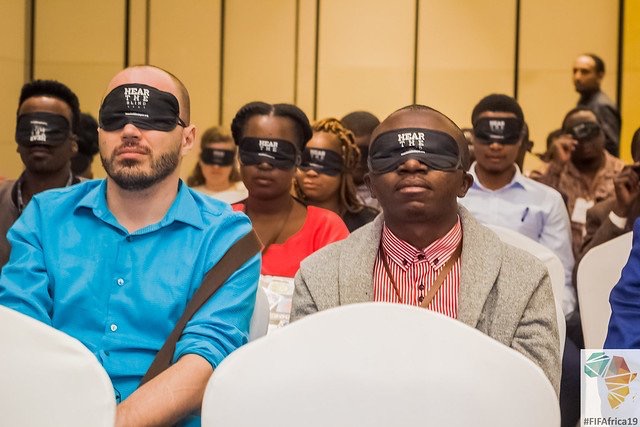Technology has woven itself into every aspect of our lives over the past few weeks. People have been required to work online, attend school lessons online, shop for essential goods and most importantly, build social communities online. Building communities requires people to have at the most basic, access to relevant ICT. We have seen a surge in the implementation of policies to cushion the general public from some costs, such as reduced M-Pesa, introduction of data bandwidth subsidies for university students and providing a wider internet coverage among others.
There has never been a more critical moment to explore the overlooked facets of access and digital inclusion. Inclusion is not limited to internet access or coverage. It involves a deliberate effort to eliminate the barriers that prevent people from accessing the internet comfortably.
Persons with disability in Kenya, have borne the brunt of digital exclusion for as long as memory serves. From the outdated laws and policies being used to govern their rights, to the minimal efforts by communication service providers and tech developers to improve their digital experiences, to the lack of allocation of the Universal Service and Access Fund in improving accessibility. This has limited their participation in critical conversations and platforms.
The iHub has decided to call for accountability from the different stakeholders involved in designing and curating the online experience in Kenya. We are keen on collaborating with persons with disability to analyze the accessibility levels of different websites that are essential in Kenya i.e, e-government services, through our web and mobile accessibility checker as well as improving the digital safety and security levels for young women with disability in online spaces.
In a report soon to be released by the iHub GovLab, we will share learnings of our recent online session with stakeholders as well as our findings from working with persons with disability and disability people’s groups who shared with us their experiences in the online space. One of our key learnings from our engagements is the need for a collective call to action, this is from institutions designing and developing platforms and content for our communities to governments who create policy.
In the month of May, the iHub will be sharing knowledge on how we, as a community, can improve the online experiences of persons with disability on social media platforms. By taking simple yet mindful measures such as describing our images and including closed captions on audio and video, and avoiding ableist language, we build a culture of empathy and kindness.
This is just a first step in improving and easing ICT access for persons with disability. As a tech community, we still have a long way to go in designing, developing and advocating for more inclusive spaces. Make sure to follow our social media pages on Twitter, Facebook and Instagram as we delve deeper into what eased and improved access means to persons with disability and how you can help us in building a more inclusive and accessible internet!
In other related news, the iHub is running online etiquette and safety sessions for our young online citizens between 18 and 24 years old. Through these sessions, we aim to cultivate empathy, kindness and awareness by covering important topics like privacy, online violence and building a more collaborative and safer internet space. If you or someone you know, are interested in these sessions, please send your name, age and email address to nyakwaka@ihub.co.ke and we will be happy to sign you up and share with you the next steps!
In case of any questions, concerns or suggestions please reach out to nyakwaka@ihub.co.ke
